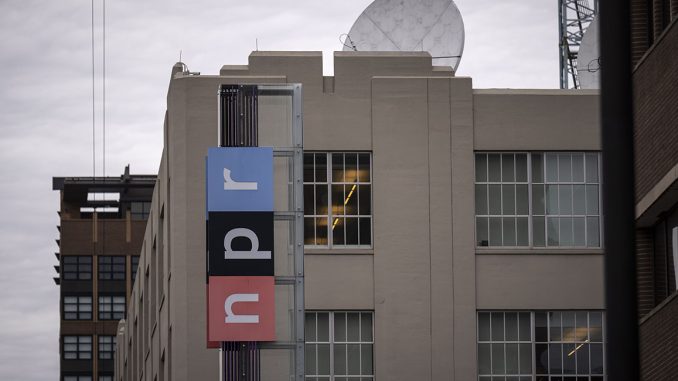
In a move to preserve its very existence, National Public Radio cut four of its major podcasts and about 10% of its workforce, or around 100 employees, on Thursday, a major reduction not seen since 2008.
The reasoning behind the decision seems to be a drop in ad revenue from advertisers’ reluctance to spend money on podcasts, according to NPR. The canceled podcasts are “Invisibilia,” “Louder Than a Riot,” “Everyone and Their Mom,” and “Rough Translation.”
“We literally are fighting to secure the future of NPR at this very moment by restructuring our cost structure. It’s that important. It’s existential,” NPR chief executive John Lansing stated in an interview.
“The layoffs will affect employees who work behind the scenes to produce shows, podcasts, design visual elements, and conduct audience research. The layoffs are done to preserve NPR’s core public service mission,” Lansing lamented.
NPR is not the only media outlet to have significant layoffs. The Washington Post laid off 20 staffers in January, and CNN laid off hundreds of journalists and pundits last year. Other big media organizations such as Disney, Warner Bros. Discovery, Amazon, Google, Meta, and Vox Media have also experienced major job cuts in the past several months.
“We’ve tried very hard to sustain the essential things that will keep us moving forward,” Anya Grundmann, NPR’s senior vice president of programming and audience development, said.
“That includes our ability to be meaningful to audiences on digital and visual platforms, our radio audiences, our podcast audiences—our narrative journalism,” Grundmann said. “I think we lost some excellent projects that have made NPR stand out … And we’re losing some great people, who are incredibly talented and who have contributed so much to NPR and to public service.”
Most of the laid off staff will remain on the payroll until the end of April, according to NPR. For the targeted programs, NPR is “stopping production” instead of officially canceling them, which leaves the door open for the podcasts to come back.
This is not the first instance of financial troubles for NPR. It tried to address these issues by cutting $20 million in expenses in November.
“Unlike the financial challenges we faced during the worst of the pandemic, we project increasing costs and no sign of a quick revenue rebound,” Lansing wrote in a staff memo last month. “We must make adjustments to what we control, and that is our spending.”
Lansing said NPR’s management is working with the NPR Foundation to secure more funding if the deficit continues to grow.
Have an opinion about this article? To sound off, please email letters@DailySignal.com, and we’ll consider publishing your edited remarks in our regular “We Hear You” feature. Remember to include the URL or headline of the article plus your name and town and/or state.

